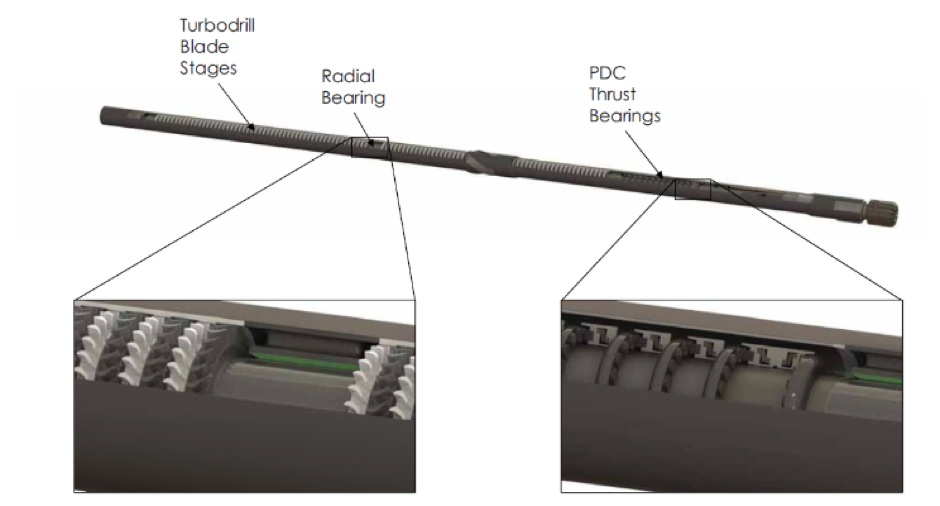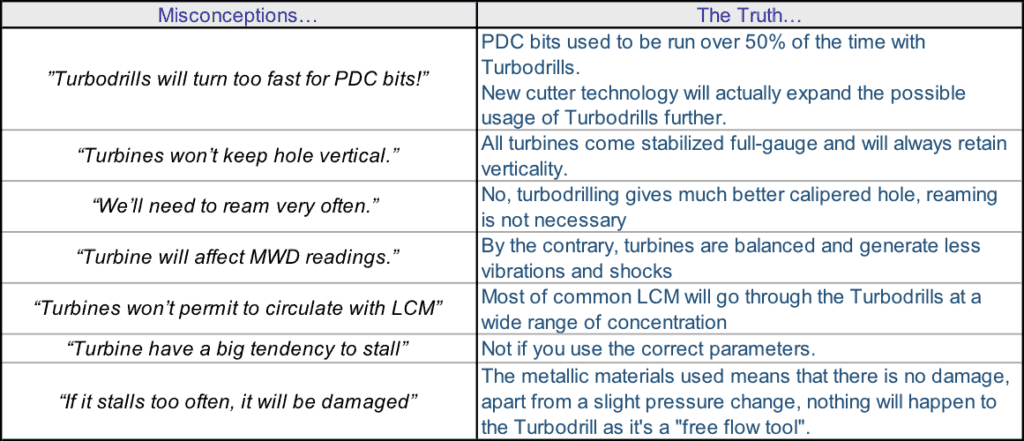
This is a question every Turbodrill expert gets asked by every customer on a daily basis.
The answer can be simple; every application.
This is the obvious answer. What you really should be asking yourself is: where is it the most economical to utilize the Turbodrill? Now it becomes more complicated.
Over time there have been many misconceptions about when to use Turbodrills and which application is best suited for its specific skill set.
Every tool has its strength and weaknesses. Once you understand those, you can figure out what the best application is for that specific tool. Many service companies like to make us believe they have “one tool that does all”. This can work in certain circumstances but it’s never the perfect tool for all circumstances. But I digress.
Turbodrills:
In a nut shell; High speed and low torque. Tends to be utilized in hard abrasive formations with natural diamond or impregnated drill bits. This seems to be the current consensus and people are happy. This is what they understand and what they have learnt.
Unfortunately, it is not as simple as that… What if I told you Turbodrills used to be run with rock bits? In the nineties 65 to 70% of Turbodrills were run with PDC bits? We must understand the real strengths and weaknesses here.

So, things are not always as they seem.
To help out in this maze of choices, tools and misconceptions I have developed an Application Identifier tool. It is an easy to use online tool that helps you check if an application has a possible use for Turbodrills.
If that possibility exists, I will evaluate the information you have sent me together with the completed Application Questionnaire and I will get back to you as soon as possible for further discussions.
Turbodrills might still not be the best solution but I will recommend what I think is the best solution and, if possible, help you get in touch with the right expert for that tool.
The Application
There are many factors that need to be taken into account when we look at the different applications:
- What kind of formation is it?
- Is it homogenous?
- What is the rock strength?
- What is the down hole temperature?
- Is the formation abrasive?
A good start is always to look at offset wells in the vicinity:
- When were they drilled?
- How were they drilled?
- What bits and drive systems were used?
- Did they have any issues?
Just by looking at offset wells we can learn a lot.
If I see a long section with many rock bits being utilised and very worn PDCs being pulled after short runs; this is an interesting application.
Another one can be a long section with various formations where you see very high variability in the ROP through different formations.
This could be a sign of formations that require torque to be drilled with other layers of formations that require speed to be drilled.
Example:
My favorite example is always the Carbonate drilling in the North Sea. The formation is called the Zechstein and consist of inter-bedded Halite, Dolomite and Anhydrite formations.
Halite is easy, anything can drill it. It was the Anhydrite and Dolomite that were causing the issues. Standard PDM and PDC bits were slowing down considerably in those formations. Run a Turbodrill with a PDC and you will easily triple the drilling performance.
There are many more examples of impressive performance increases when you pick the right tool for the job. The whole drilling system needs to be in tune, from stabilisation to drive system to drill bit to formation.
Get one wrong and your drilling performance will suffer.
Feel free to contact me or comment on this article with questions and I will do my best to answer








any work COMING up for a old turbine engineer who has worked in 57 countries